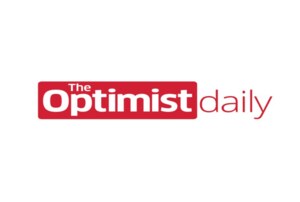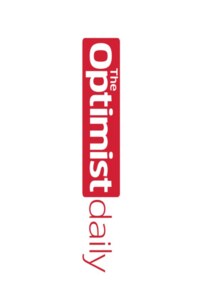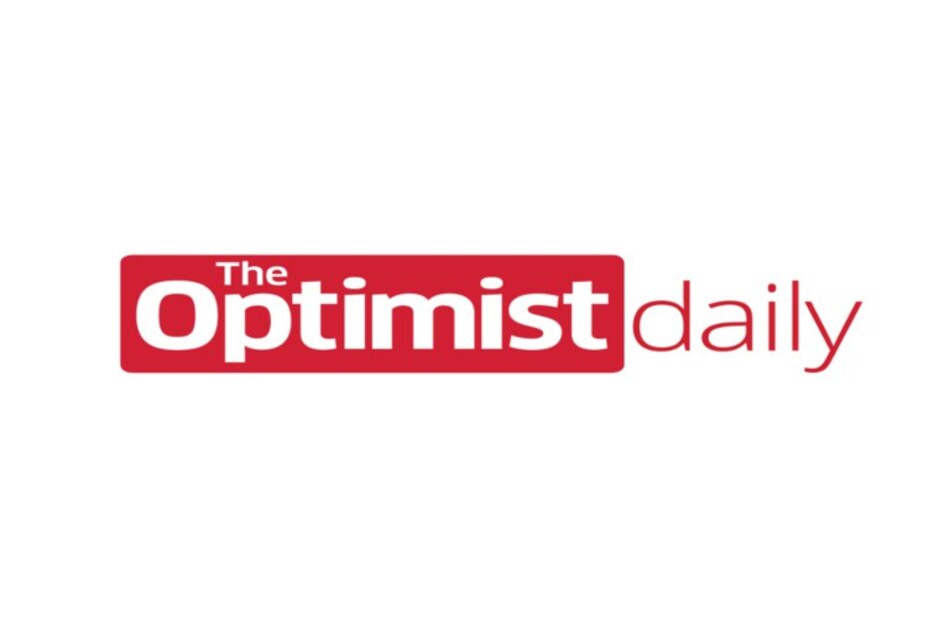“Being a solutionary will make you feel even better than being an astute constructive decision-maker, because you’re taking others’ feelings, concerns, and ideas into account when crafting your solutions and actions.” – Ken Lindner
As we head into the holiday season, the themes of love, gratitude, and peace are especially emphasized in the world around us. But, what would the world look like if we practiced these year-round? What if we all made conscious daily decisions to embrace positivity, foster self-esteem, and become the best possible versions of ourselves? This is exactly what life choice expert and career coach Ken Lindner wants us to explore in his new book, Aspire Higher.
Written amidst a global pandemic, racial injustice, political division, and a rapidly changing climate, Aspire Higher challenges us to achieve our highest values and exude ‘Altruistic Love’ not only for our own benefit, but also to help elevate those around us and the world with a newfound sense of shared consciousness. The process of re-evaluating our own understandings, beliefs, choices, and goals ultimately leads us to expressing the very energy out into the world that we hope it will reverberate back to us.
We had the pleasure of interviewing Ken (for the second time!) on our podcast, The Optimist Daily Update, this week. You can find that interview here.
CHAPTER 23: THE CONTINUAL GATHERING, ANALYSIS, AND INTEGRATION OF NEW DATA
There is no more important tool for positive growth, change, and constructive decision-making than the strategy of continuing throughout your life to gather and analyze new data—ideas, experiences, insights, and knowledge—and then testing that data against what you already know, believe, and employ in your day- to-day life. Some of the questions that you can ask include: How does the new data compare to the data on which you based your prior decision? Is it better, more advantageous, and/or healthier for you? Will it be more helpful in attaining your goals? Does it enhance you? If the answers are affirmative, you must then decide how to most effectively integrate these insights, first into your thought and decision-making processes, and then into your behavioral repertoire.
As people who know me well will attest, the foundation for almost all of my real-life navigation skills and decision-making strategies has come from my athletic experiences, specifically those in tennis and POP Tennis. Unlike sports such as baseball, basketball, and football, where you have coaches on the sidelines to guide and counsel you, and others can come in for you if you’re having a bad day, as a singles player in tennis, you are out there alone. You have only yourself to rely on. If you’re tired, sick, or having a rough day, either you suck it up, adapt, and get it right, or you lose. There’s no one on the bench to come in and take your place. It’s the true survival of the fitter, smarter, more technically proficient, more emotionally intelligent, and more creative competitor. As a result of participating in these individual sports, I’ve learned to become self-reliant and self-deterministic—because if you don’t figure it out and do it right, no one else will do it for you.
 When I’m on the tennis court playing singles, I have to continually assimilate data as I make my strategic decisions. For example, where is the sun and how will it affect me and my opponent when we serve? What kind of surface are we playing on (e.g., clay, cement, grass, synthetic), how fast or slow will the ball play on the court, and how will this information affect me and my opponent? Which direction is the wind blowing? What are my opponent’s strengths and weaknesses, the knowledge of which I have gleaned from past experience, my research, and/or watching him/her during our prematch warmup? Depending upon how the match progresses, which of my strategies should I continue to rely on, abandon, and/or modify?
When I’m on the tennis court playing singles, I have to continually assimilate data as I make my strategic decisions. For example, where is the sun and how will it affect me and my opponent when we serve? What kind of surface are we playing on (e.g., clay, cement, grass, synthetic), how fast or slow will the ball play on the court, and how will this information affect me and my opponent? Which direction is the wind blowing? What are my opponent’s strengths and weaknesses, the knowledge of which I have gleaned from past experience, my research, and/or watching him/her during our prematch warmup? Depending upon how the match progresses, which of my strategies should I continue to rely on, abandon, and/or modify?
In the Jewish religion, there are two “High Holidays,” Rosh Hashanah and Yom Kippur. Rosh Hashanah is the Jewish New Year and begins a ten-day period of self-reflection and study. It is intended to be an honest, guilt-free examination of what the observing individual has done right and well during the past year, and done incorrectly or could have been done better or perhaps omitted altogether. At the heart of this study is the premise that we are all human beings, and we will never be perfect. We have and will continue to make mistakes; they are to be expected. The key to healthy emotional and psychological growth is not to be brought down by or dwell on your missteps, but rather to learn from them and thereby grow to be a better, wiser, and more thoughtful and compassionate individual each year.
The ten-day period of reflection and study ends on Yom Kippur. At sunset on Yom Kippur, a horn called a shofar is blown, signifying that a new year has begun, and the gift of a brand-new figurative canvas has been given to each of us to paint on. The hope is that we will all evolve to be wiser and more loving, caring, compassionate, empathetic, and humane artists with each passing year.
The PLCP Philosophy* suggests that every day presents us with a Rosh Hashanah and a Yom Kippur: we must constantly be open to objectively and nondefensively gathering new data and new perspectives, and gleaning greater understanding of and keener insights regarding ourselves, others, and life. We must continually reexamine and objectively compare our old and current behavioral strategies, as well as our beliefs and perspectives of ourselves and others, to see if they are still appropriate and the best and most enhancing ones for us. We must consciously and continuously strive to be better, smarter, more evolved, and more understanding of everything and everyone around us. How you analyze and integrate the information you’ve gathered into your thought processes and behavioral repertoire will be uniquely yours, and it should also reflect your highest personal ideals, self, and values. Optimally, you will create and re-create strategies moving forward that will be effective and constructive for you and others, and will elevate and enhance you and others.
As always, if you can make choices that enhance you as well as others, you will fill your Heart-of-Hearts with the kind of positive energy that will lead you to make more and more strong and loving choices that will benefit and lift you, others, and the world we live in. So be the most radiant light possible in your life and in as many other lives as possible.
In discussing the High Holidays of Rosh Hashanah and Yom Kippur, I mentioned that when we review both what we’ve done right and could have done differently or better, the process is guilt- and fear-free. (“No sins—just wins!”) It is all about learning, growing, and improving. When you make a faux pas, understand it, analyze it, and learn from it. Then put it in your rearview mirror and drive with great optimism toward wiser and more evolved days.

In a recent conversation that I had with Rabbi David Woznica, he explained that the process of Leonardo da Vinci painting the Mona Lisa is much like the ten-day period of self-examination that we just discussed. With infrared light, one can see the many times that da Vinci painted an imperfect stroke, which he later painted over in an effort to improve it. In some cases, da Vinci had to paint over a stroke many times until he felt that he had finally gotten it right. Rabbi Woznica analogizes this process to our making and taking imperfect choices and steps, respectively, and continually improving them until we finally get them right. The key is to lovingly and constructively aspire higher by taking the steps that will enable us to be our best selves and attain our greatest potentials.
A second point that Rabbi Woznica made is that with the naked eye we only see the finished, masterful final product that da Vinci ultimately produced, and not the many times that he had to start over, regroup, and improve. So we must not be discouraged or intimidated when we see the final, stellar version of a person, product, or process; it’s essential to understand that success is attained through a journey of starting over, rethinking, regrouping, taking necessary steps back in order to take enhancing and beneficial steps forward, and improving. It’s all part of the constructive life process of growing and evolving.
TAKING PRIORITIZATION TIME
A longtime friend who has grown to be one of this country’s most innovative, astute, and successful business creators shared with me that each day, for twenty minutes or so, he clears his agenda and his mind, and takes quiet time to come up with new business ideas. He thinks about needs, voids, and potential new niches in the market- place and then figures out ways to effectively fill them. Similarly, if you can take time each day to relax and declutter from the “whole lotta-nada” that is swirling in your head, and think about the people who are important to you, what truly matters, and how you can be the most caring and evolved individual possible, so many wonderful, positive future choices and actions can be the beautiful result. This quiet prioritization time will be invaluable to you and to the others whose lives you touch as you aspire higher.
MOTIVATION AND ENERGY-CHARGE EXPRESSION
Let’s now focus on and keep in mind three levels of motivation and energy-charge expression:
- The lowest level of motivation and energy-charge expression is performing acts out of fear, guilt, sadness, loneliness, hurt, anger, and hate. For example, when one acts out of fear, whether the fear of punishment or getting caught, the motive for acting in such a manner isn’t highly evolved.
- The next level of motivation is when you perform acts with “karma” as your incentive. That is, you perform a certain act because you expect or hope for something good to come back to you in return. And while I believe that “karma” in some form does exist and acting in hopes of a“karmic payback” is more evolved than acting out of, say, fear or guilt, such acting or giving can in most instances be “conditional.”
- As we have discussed, the highest level of motivation and energy-charge expression in The PLCP Lifestyle is acting altruistically. This is the goal. Altruistic acts are performed purely because they are intrinsically the right things to do, with no regard for any benefit that you might receive for performing them. These acts are undertaken lovingly, selflessly, and unconditionally.
As it turns out, you do receive an incredible benefit when you engage in the altruistic acts of Toxic Energy Charge Dissipation, such as loving, forgiving, understanding, respecting others, and being compassionate, sympathetic, and empathetic. When you perform these acts, they not only dissipate your highly toxic energy charges, but they fill your Heart-of-Hearts with positive feelings about and perceptions of yourself, which in turn catalyze you to make more positive choices and take more positive actions. So, one positive choice and act organically leads you to make other positive ones, while you continue to fill your Heart-of-Hearts with feelings of high self-worth.
The more you have feelings of high self-worth, the more you develop and feel the empowering feelings of self-love, and once you feel true self-love, you are far more likely to be forgiving and understanding of others and yourself, as well as loving, respectful, and compassionate. So, one process (utilizing TECD) is completely complementary to the other (instilling positive feelings and perceptions into your Heart-of-Hearts).
Additionally, by unconditionally forgiving, understanding, respecting, appreciating, and loving others, and showing compassion and empathy/sympathy for them, you put the percentages strongly in your favor that you will more easily and effectively diffuse your toxic energy charges.
It has been said that “forgiveness is a favor that you do for yourself” and that “showing grace is giving someone the benefit of the doubt.” Unquestionably, expressing forgiveness, concern, compassion, empathy, and the like empowers you with the high turbo-charged positive feelings within to aspire higher, be your best self, and enjoy your best life . . . all while helping, supporting, and elevating others. How supremely great is that?
You can find Aspire Higher and learn more about all of Ken’s books on his website.
*The core concept of POSITIVE LIFE CHOICE PSYCHOLOGY (“PLCP”) and The Positive Life Choice Psychology Lifestyle. (“The PLCP Lifestyle”), is that with each positive life choice that you make—be it big or small—you begin to jump-start your life and positively and constructively put yourself on a track to be your very best self. You also develop the confidence that you indeed can affect positive and highly beneficial change in your life, as well as develop empowering feelings of high self-esteem, self-worth, and self-love—all of which will motivate you to make more and more positive life choices because you feel that you deserve the sweet results of life choices well-made.
About Ken Lindner

Ken owns a successful and well-respected TV broadcast journalist representation firm, Ken Lindner & Associates, Inc. and is the founder of Positive Life Choice Psychology. Ken has been choreographing careers for nearly 38 years and has represented some of the biggest names in the business including Lester Holt, Mario Lopez, Megyn Kelly, Robin Meade, and Liz Claman.
In addition to “Aspire Higher,” Ken is the author of five books: “Career Choreography™”; “Your Killer Emotions: The 7 Steps to Mastering the Toxic Emotions, Urges, and Impulses That Sabotage You”; “Crunch Time! 8 Steps to Making the Right Life Decisions at the Right Times”; and Editions 1 and 2 of “Broadcasting Realities.” At the heart of all of these books is the concept that your life choices are precious and if made wisely and strategically, they can change your life in the most beneficial and wonderful ways.
Ken graduated from Harvard University, magna cum laude, from Cornell Law School, and from Brooklyn Polytechnic Preparatory Country Day School (Brooklyn Poly Prep).
He lives in Los Angeles with his wife Melinda, their twin children, Mary and Tristan, and their three adorable dogs, Peanut, Bert, and Clara.











